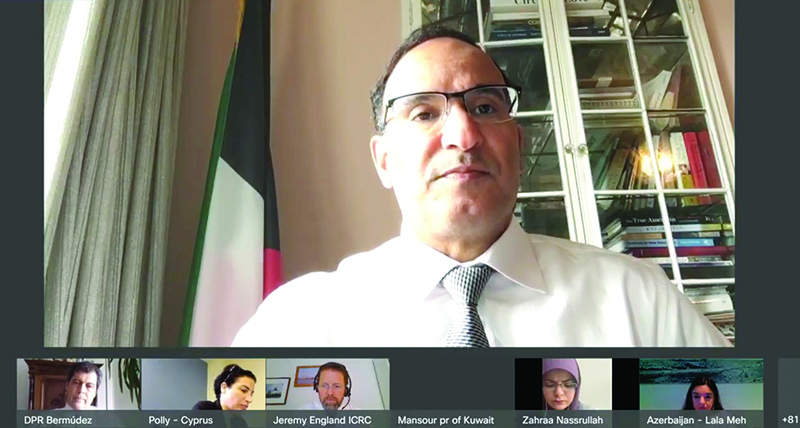
KUWAIT: Kuwait expressed hope that warring nations bear the responsibility for ensuring the safety of civilians and preventing their disappearance during armed conflicts, urging the prevention of conflicts. This came as Kuwait’s permanent UN representative Mansour Al-Otaibi attended, as a keynote speaker, a virtual meeting discussing Security Council resolution 2474 on missing persons in armed conflicts. Security Council Resolution 2474, submitted by Kuwait during its non-permanent 2018-2019 membership status, was adopted for the first time during Kuwait’s presidency of the Council in June 2019.
Otaibi said he wanted opposing sides in any armed conflict to also respect and guarantee human rights for all individuals within their territories in line with international law. It is important to prevent the disappearance of people, he added, urging the sides to enact legislation that ensures the registration of detainees and the appropriate training of soldiers in handling detainees. He called for adequate identification and search methods, including for soldiers, through registration offices that monitor fatalities and ensure accountability for any wrongdoing. The Kuwaiti diplomat also urged the adoption of forensics, DNA analysis and satellite imagery to locate the whereabouts of missing persons, saying these helped Kuwait in finding some of its own missing nationals after the 1991 Gulf War.
Speaking of the resolution’s significance, he explained it promotes respect for international humanitarian law and addresses the root causes of armed conflicts. It aims to achieve sustainable peace and security through dialogue, mediation, consultation and political negotiation in order to resolve disputes and end conflicts, he added. Otaibi said Kuwait worked hard and long for the resolution to come into place, despite the matter continuously being brought up at numerous Security Council talks and not being granted the rightful attention it deserves. Kuwait’s ongoing search for its missing POWs began after the founding of a tripartite commit in 1991, led by the International Committee of the Red Cross, including Kuwait, Iraq and four Allies (US, UK, France and Saudi Arabia). — KUNA









